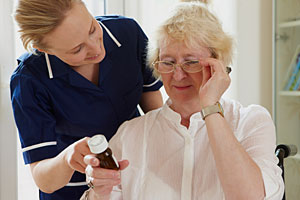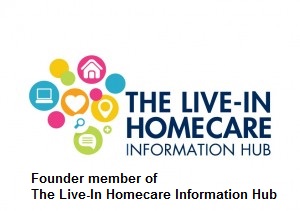Latest News from Everycare
 Elderly people are adding to pressure on A & E units because of the continual cuts in social care funding.
Elderly people are adding to pressure on A & E units because of the continual cuts in social care funding.
Older people in England are being left “high and dry” by councils cutting back on the care they provide, Age UK says.
Research by the charity showed the numbers getting help had fallen from just over one million three years ago to 850,000 last year. Age UK said the cuts were one of the major causes behind the growing pressures on A&E units. But councils said they had been left with little choice because they were “chronically underfunded”.
The overall cut in numbers getting help from councils represents a drop of one-fifth.
But the research – based on an analysis of official figures – also provided a detailed breakdown of which individual services had been cut.
It found between 2010-11 and 2013-14:
- The numbers getting help at home for tasks such as washing and dressing fell by a third to just over 370,000
- Day care places have dropped by two-thirds to just under 60,000
- The numbers getting meals on wheels fell to 29,500 – a decline of 64%
Age UK director Caroline Abrahams said: “Our state-funded social care system is in calamitous, quite rapid decline.
For more information on this story visit the BBC website.
Stay in my home – care choices for all
 A recent survey reported that the majority of people do not wish to go into residential care when they get older but strongly state that they wish to “stay in my home”.
A recent survey reported that the majority of people do not wish to go into residential care when they get older but strongly state that they wish to “stay in my home”.
The thought of moving into a residential home which signifies to many people a heavily regimented way of life instead of staying in the comfort and security of their own home is a daunting prospect. However more and more people are now staying in their home by taking advantage of live in care services available across the UK.
Often individuals are not aware that there is another option available to them and do not consider the alternatives to moving into a residential home. Live-in home care provides a cost effective alternative to residential care with a personal carer living in the client’s home on a full time – 24 hour , 7 days a week basis. The 24 live in home care service provides full support to the individual including washing, dressing, preparing meals and help with medication, housekeeping and companionship too.
The survey was undertaken by One Poll in July 2014. More details on live in care can be found at the Live-In Homecare Information Hub is brought to you by a partnership of the UK’s leading live-in care at home companies, all of whom are experts in this specialist field.
Everycare provides 24 live in care services – please contact us today for more information.
 The brain has a weak spot for Alzheimer’s disease and schizophrenia, according to UK scientists who have pinpointed the region using scans.
The brain has a weak spot for Alzheimer’s disease and schizophrenia, according to UK scientists who have pinpointed the region using scans.
The brain area involved develops late in adolescence and degenerates early during ageing. At the moment, it is difficult for doctors to predict which people might develop either condition.
The findings, in the journal PNAS, hint at a potential way to diagnose those at risk earlier, experts say. Although they caution that “much more research is needed into how to bring these exciting discoveries into the clinic”.
The Medical Research Council team who carried out the study did MRI brain scans on 484 healthy volunteers aged between eight and 85 years.
The researchers, led by Dr Gwenaëlle Douaud of Oxford University, looked at how the brain naturally changes as people age.
The images revealed a common pattern – the parts of the brain that were the last to develop were also the first to show signs of age-related decline.
For more on this story visit the BBC News website
 It has been reported by the Independent Age charity and Strategic Society Centre that elderly people in England struggle with looking after themselves in their own home.
It has been reported by the Independent Age charity and Strategic Society Centre that elderly people in England struggle with looking after themselves in their own home.
The report entitled the ‘The Bigger Picture’ reveals that over 2 million pensioners struggle with the most basic tasks. Meanwhile, 70,000 of the most disabled pensioners do not get any form of paid or unpaid care at home.
The research undertaken by the organisations shows that 2 million plus people have difficulty with washing, dressing, cooking or eating.
And of the 560,000 of these with severe needs, 160,000 receive inadequate help while another 70,000 have none at all.
Amazingly just under 1 million people have help paid for by themselves or the council but this is now decreasing as state funded services are put under pressure.
Of most concern is the fact that over 30,000 older people care for others in situations considered a risk to their health and wellbeing – alone and for at least 20 hours a week.
For more on the report into elderly care in England visit the Independent Age website
 Elderly people are adding to pressure on A & E units because of the continual cuts in social care funding.
Elderly people are adding to pressure on A & E units because of the continual cuts in social care funding.

 A recent survey reported that the majority of people do not wish to go into residential care when they get older but strongly state that they wish to “stay in my home”.
A recent survey reported that the majority of people do not wish to go into residential care when they get older but strongly state that they wish to “stay in my home”. The brain has a weak spot for Alzheimer’s disease and schizophrenia, according to UK scientists who have pinpointed the region using scans.
The brain has a weak spot for Alzheimer’s disease and schizophrenia, according to UK scientists who have pinpointed the region using scans. It has been reported by the Independent Age charity and Strategic Society Centre that elderly people in England struggle with looking after themselves in their own home.
It has been reported by the Independent Age charity and Strategic Society Centre that elderly people in England struggle with looking after themselves in their own home.